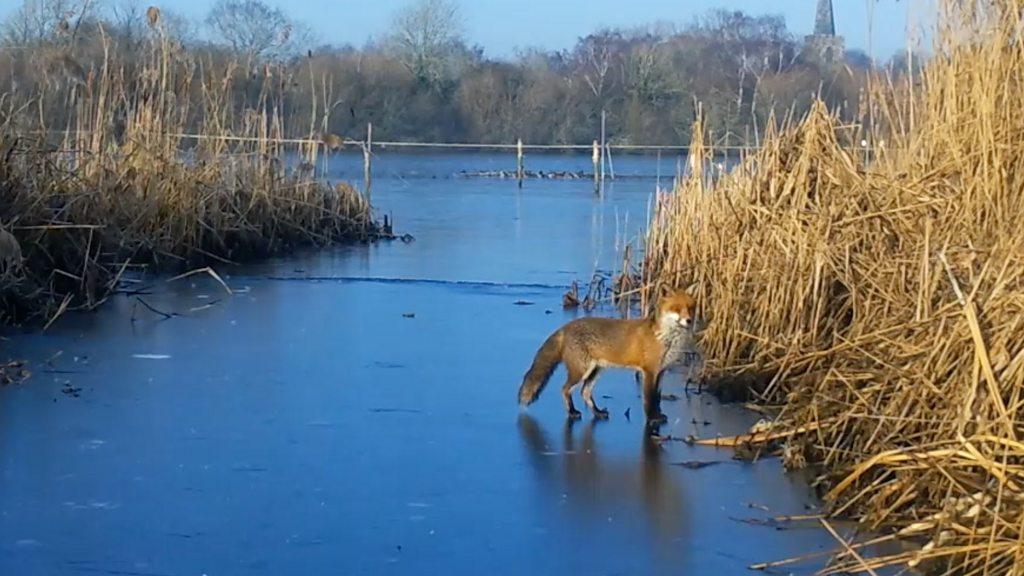'Rare' photos captured of otter eating crayfish
- Published
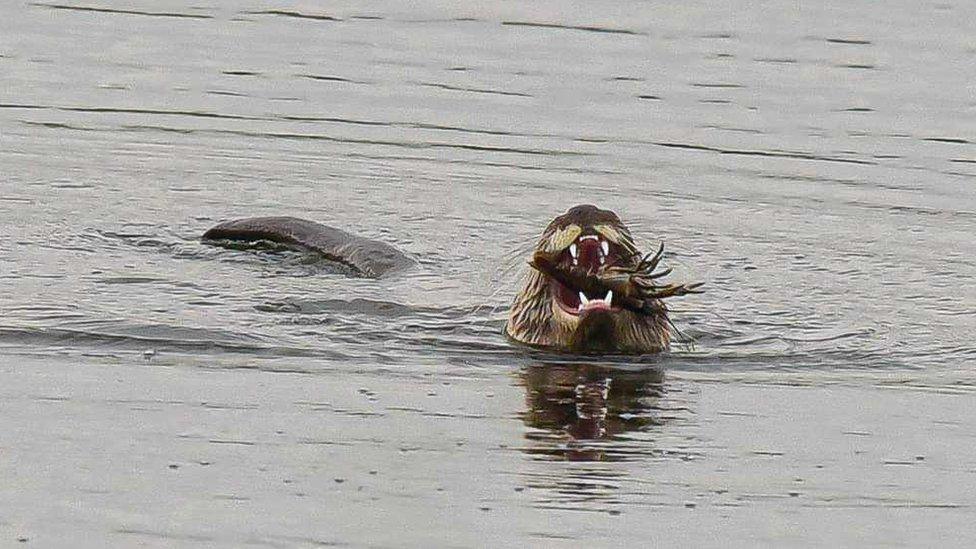
The otter has been seen eating crayfish at the reserve
A wildlife photographer has captured "rare" photos of an otter feasting on crayfish at a nature reserve.
Gary Barber has been taking photos of the mammal at Attenborough Nature Reserve in Nottinghamshire each day for the past week.
Otters, which were were extinct in Nottinghamshire from the 1970s to the 2000s, are known to be elusive and are usually most active at night.
The county's wildlife trust described the photos as "stunning".
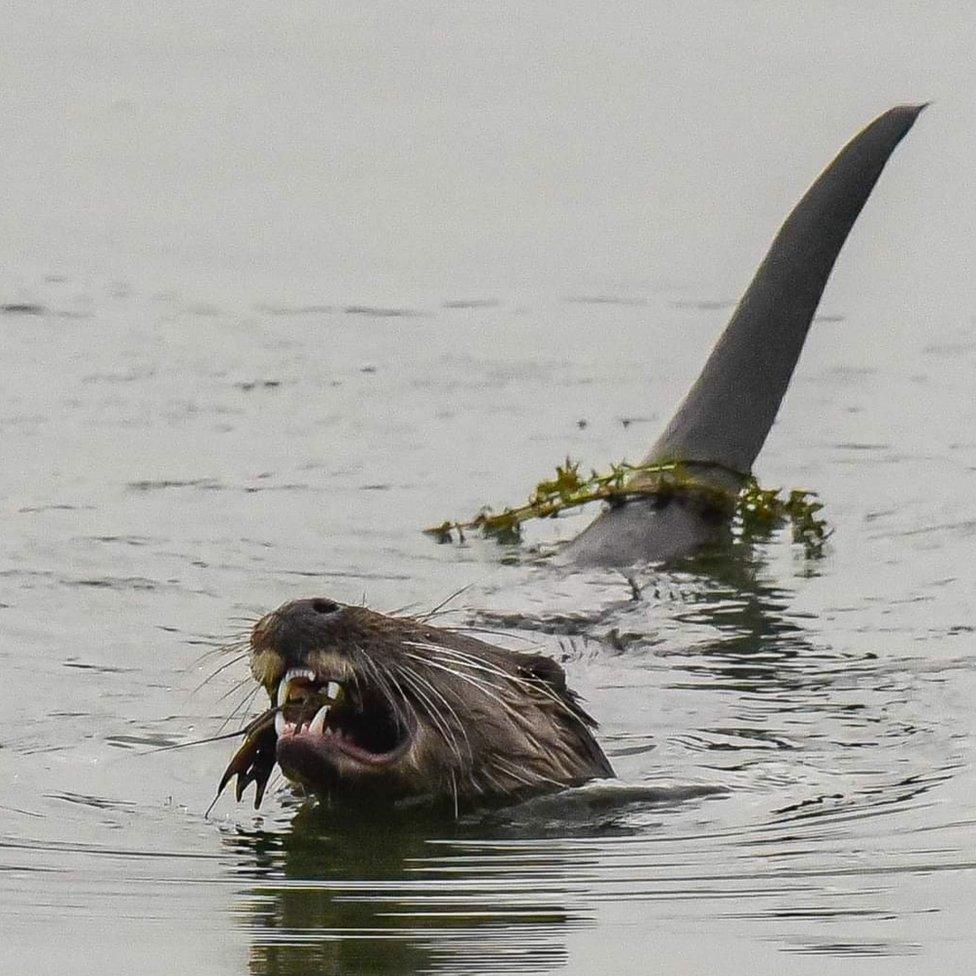
Otters were extinct in Nottinghamshire in the 1970s
Mr Barber, 59, said the otter swam to within 15ft (4.5m) of him as he was taking photos at the reserve's Clifton Pond.
"Normally, with something like an otter, you're lucky to get a brief glimpse," he said.
"It's teeth are absolutely pristine white. It's like he's been to one of those dentists in Turkey that everyone's heading to.
"He came right up to the hide and was basically looking at everybody going, "what are you doing?" with a crayfish in his mouth."
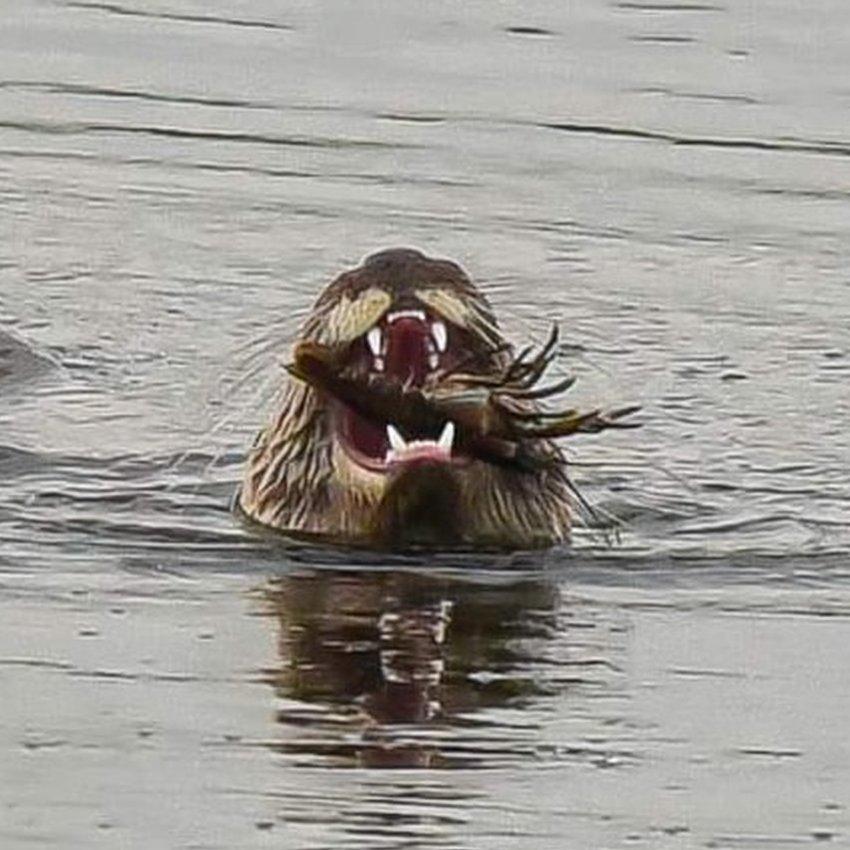
Nottinghamshire Wildlife Trust described the photos as "stunning"
He added: "I've a feeling it's a young male that's just moved in and he's fell upon a bounty of food and he's taken advantage for now."
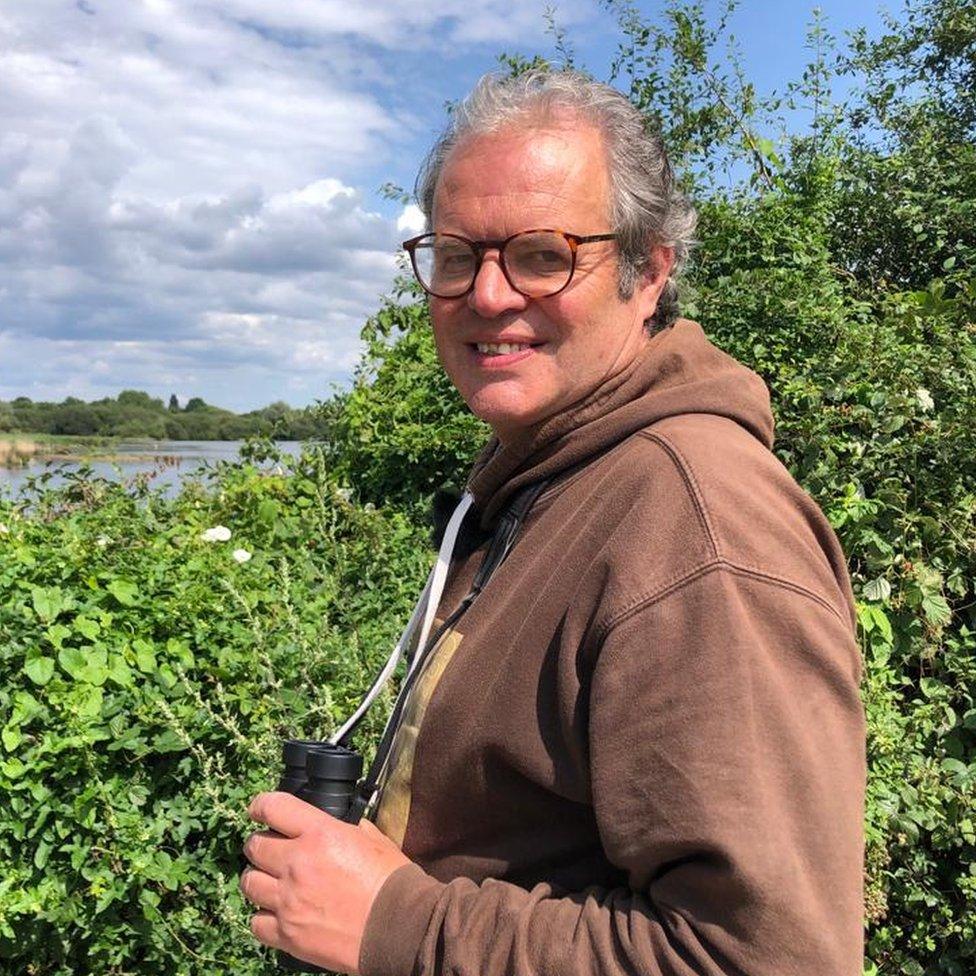
Gary Barber has been photographing the otter every day this week
Mr Barber said the animal was garnering interest amongst wildlife lovers at the nature reserve, with hides becoming busy during the mornings.
A Nottinghamshire Wildlife Trust spokeswoman said: "The stunning photos of a male otter at Attenborough Nature Reserve highlight the value of wetland habitat for the recovery of our native wildlife.
"After otters became extinct in Notts in the 1970s, Attenborough Nature Reserve was one of the first places they were recorded as they began returning to the county in the early 2000s.
"Whilst sightings are still rare and photos even rarer, these wonderful native mammals continue to benefit from the creation and management of habitat such as reedbed."

Follow BBC East Midlands on Facebook, external, on Twitter, external, or on Instagram, external. Send your story ideas to eastmidsnews@bbc.co.uk, external.
Related topics
- Published30 January 2023
